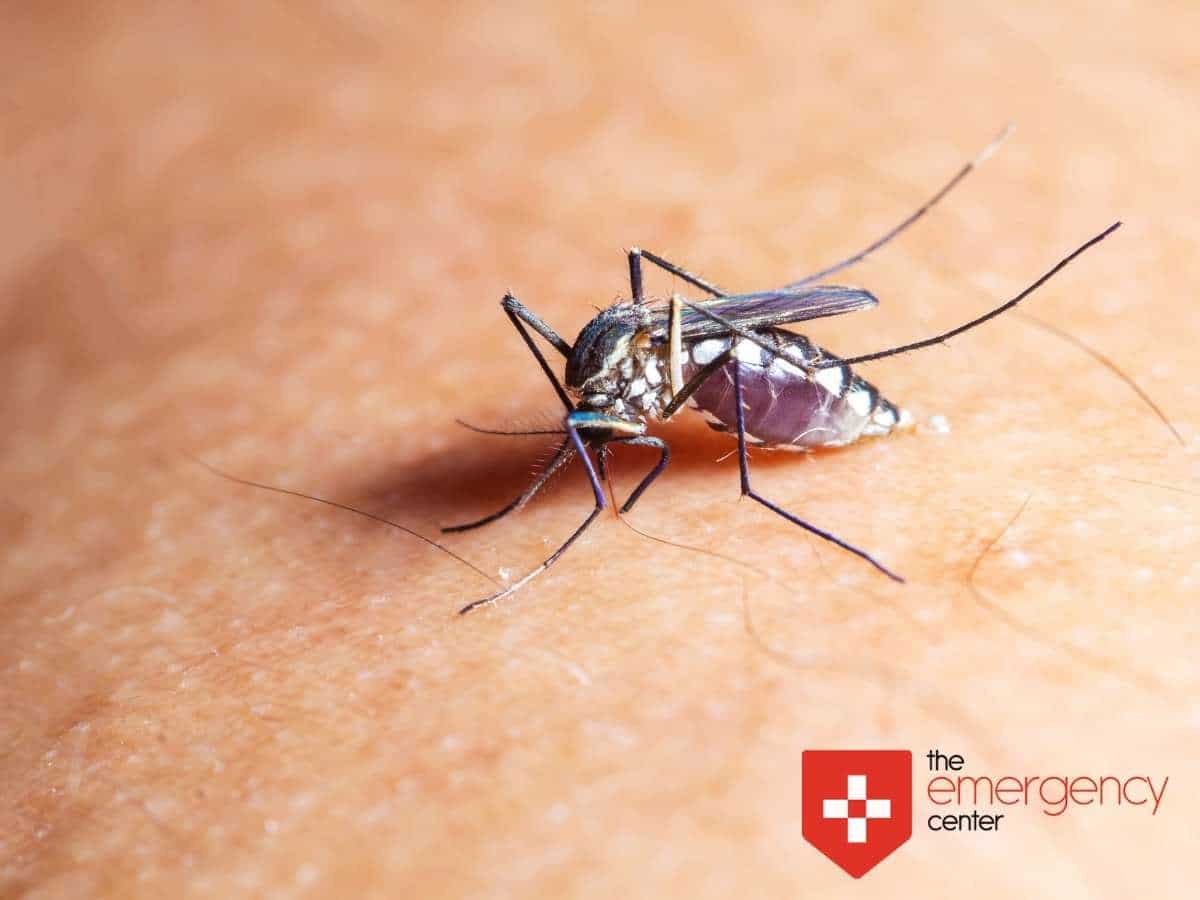What Are The Effects Of West Nile Virus?
West Nile Fever: Common Symptoms, Causes & Treatments
The beginning of summer means the resurgence of a looming threat from one of nature’s most irritating creatures: the mosquito. Summertime is prime time for these pests and the diseases that they carry. One condition in particular just so happens to be the leading cause of mosquito-borne illness in the United States. This disease is known as the West Nile virus, and these menacing bloodsuckers bring it with them every summer.

How Does West Nile Virus Spread?
Mosquitos are known to feed on infected dead birds with West Nile Virus. Once they do, the virus becomes stored within the insect’s salivary glands. When a mosquito bites someone, the insect injects the virus into that person. The virus then multiplies and can cause illness in some individuals. Other animals that have become infected are also capable of transmitting West Nile to humans, but this is rare. To this day, there has been no known case of human to human transmission of the disease.
What Are The First Signs & Symptoms Of West Nile Virus?
Although about 80% of people infected with West Nile experience little to no symptoms, it is still important to recognize the signs .
- In severe cases, the virus can cause serious damage to the central nervous system which can be permanent if not fatal.
- Encephalitis and meningitis are diseases that can develop from the inflammation of the brain and spinal cord caused by the West Nile virus.
- Evidence shows that 10% of people infected with West Nile Virus die once the virus affects the central nervous system.
- Other severe symptoms include high fever, disorientation, stiffness in joints and the neck, nausea, vomiting, muscle weakness and even paralysis. Individuals over 60 years of age have a higher chance of developing these symptoms.
- People with diabetes, kidney disease, hypertension or have an organ transplant are also at higher risk.
Due to the life-threatening conditions involved with the West Nile virus, it is imperative that people are aware of these symptoms so that proper emergency medical attention takes place.
Can West Nile Virus Be Cured?
As with the common cold, there are no preventative vaccines or medications that are specifically for treating or countering West Nile Virus. Fortunately for the vast majority, symptoms are non-existent. Most people won’t even know they have West Nile Virus. Rarely, symptoms become intolerable and severe; in this case, seek an emergency room as soon as possible. With conditions such as this, patients may be hospitalized and receive supportive care such as intravenous fluids, respiratory support, and pain medication.
What Is The Best Way To Prevent West Nile Virus?
To many, mosquitoes are the single worst thing about summer. They are pests, and these insects seem to serve no other purpose than to annoy people and spread disease. The fact that they are also responsible for something as potentially dangerous as the West Nile virus doesn’t make them any more pleasant to be around. By taking the proper precautions, these pests don’t have to ruin a perfectly enjoyable summer day. Since there are no available vaccines for humans, preventative actions can be taken to reduce the chances of contracting West Nile from mosquito bites.
- Thiamine supplements. Also known as vitamin B-1, Thiamine blocks the sense of smell for the insect. The inability to smell prevents it from reaching its target.
- Mosquito repellant. Mosquito repellant comes in many different forms, yet they all serve the same purpose. Just as with thiamine, these repellants are good at removing the ability for the ability to smell out its target. Citronella candles, ointments, and sprays are all useful repellants that prevent mosquito bites.
- Hotspots. Avoid areas that are known to support harbor mosquito swarms. Mosquitoes tend to be most active between dusk and dawn and are also more active in the summer time. Hot temperatures also can create humid, swamp-like conditions in wet and wooded areas that are the preferred ecosystem for these insects, so stay away from them as much as possible.
- Clothing. When outdoors, wear long sleeves and loose clothing to minimize skin exposure. One unknown fact about mosquitoes is that they are more attracted to darker colors. When outside, also consider wearing lighter colors. Not only will this deter them from attacking, but it also helps keep the sun from absorbing into the clothing. Sweating more commonly occurs when dark colors in the sunlight and create more body heat. Sweat helps emit the odors that attract mosquitos.
- Standing water. When left outside, buckets or glasses of standing water are primary breeding grounds for mosquitoes. When finished with an open container of water, empty it far away from people and either take the container indoors or place it upside down.
- Nets. Insect nets are highly effective at preventing these insects from getting to exposed skin. When camping or in a smaller outdoor area, place a large net around the party to keep these pests out.
- Air. Mosquitoes love stale air. Stale air allows humidity to rise and people to sweat. Use a powerful outdoor fan to keep the air circulated. Circulated air helps prevent the rise in moisture that attracts mosquitoes.
Visit The Emergency Center If You Have West Nile Virus Symptoms
If you have symptoms that appear to be an emergency, do not hesitate to come to The Emergency Center right away. The Emergency Center provides up to 23 hours of Observation and offers 24/7 care with NO WAITING. Visit our freestanding emergency room, to get the care you need, or call us at 210-485-3644 for more information.

The Emergency Center
San Antonio
11320 Alamo Ranch Pkwy
San Antonio, TX 78253
Phone: 210-485-3644


